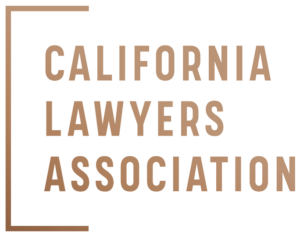Whether you are an existing client or considering working with the DHG Legal, P.C., here is what you can expect during your representation and what will be expected from you.
The following serves to provide guidance in preparation for your representation. It is in your best interest to understand the following points to ensure the best possible outcome in your representation. If you have any questions or concerns, please reach out to the attorney assigned to your case or, if you are a prospective client, schedule a consultation.
Please also note that this outline is generic in nature and is most relevant for clients for whom litigation is likely or possible. Not all aspects of this outline will apply to your representation, but it is important you review this information, nonetheless.
1. Communicating with Your Attorney
Our firm is committed to be as available and accessible as possible. At the same time, realities such as time constraints and needing to service multiple clients at the same time mean that our team may not be available to respond to your calls immediately. To make it easier for you to get the help you need quickly, our firm uses an automated scheduler where you can schedule an appointment (for clients only) at your convenience. Our firm’s telephone system also allows for SMS text messaging and from time to time, we may reach out to you that way to obtain an answer from you or communicate something to you quickly. We also make meeting with you easy and convenient by offering remote meetings via Zoom.
2. Communicating with Third Parties
You must be very careful regarding communications with third parties. Do not speak to anyone regarding your case, including your employer, without your attorney’s authorization. Once you are represented, the rules of ethics governing the legal profession prohibit any other attorney from communicating with you directly without your attorney’s permission. Immediately forward all communication you receive concerning your case to your attorney (do not assume that your attorney received them) or notify you attorney that you have been contacted by another attorney, a governmental entity (such as the EEOC or the DFEH), law enforcement, the media, or anyone else regarding your case. If a response from you is required (such as when the DFEH requests information from you), do not respond without first discussing your response with your attorney. Whenever possible, your attorney should communicate with others on your behalf. What you say about your case could negatively impact your claims.
3. Cooperation & Client Participation
The best outcome in your representation depends on your cooperation and participation. You will always be alerted of important developments in your case and will be consulted regarding strategy. We will always listen to you and respect your concerns. In return, we ask that you listen to our advice and that we work together to find a strategy that accomplishes your goals. This includes responding promptly to calls and emails. If you are going to be out of reach, you must commit to providing advanced notice of your unavailability. This is extremely important as there are some decisions we cannot and will not take without your consent. Occasionally taking immediate action could become necessary to prevent a negative impact on your claims, in which case we will use our best judgment in deciding whether to take action if you are unavailable.
Your cooperation and participation are increasingly important if your case moves into discovery. The discovery process requires a lot of time and coordination. At this stage of a case, each side has a legal obligation to exchange information in response to the other party’s written requests. You are the fact expert for your case, which means your active help and participation in responding to discovery requests from the other side is mandatory. You must agree to actively participate in your case. This includes reading all discovery requests and responses, answering all questions completely and truthfully, providing all the documents requested, and promptly signing forms that require your signature. Your failure to cooperate at any stage of your representation may result in our firm withdrawing from representing you. Attorney withdrawal may negatively impact your claim because you may not be able to quickly find a new attorney to represent you. Furthermore, attorney withdrawal is a very serious matter that may require court authorization and disclosure of certain facts in your representation. It is extremely important that you take the obligations regarding discovery seriously.
4. Litigation hold
During litigation or when litigation is reasonably anticipated, you have a legal obligation to preserve all documents, notes, diaries, recordings, photographs, and any other tangible things, in addition to electronically stored information—including emails, voice mails, instant messages, and text messages—that are potentially relevant to your claims. To be on the safe side, as soon as possible, you should provide your attorney with copies of all the items in your possession that are even potentially relevant to your legal issue. Your obligation to preserve this information extends beyond items in your possession and includes anything in the custody of others subject to your direction or control. In other words, if you have entrusted someone, including another attorney, with potentially relevant information, you have a duty to notify that person(s) to preserve the information and to take reasonable steps to ensure their compliance. This also means that you should not delete Facebook or other social media posts (see below for specific instructions for social media).
5. Confidentiality
For several reasons, do not share details about your case with others. Your current or former employer has an interest in keeping your allegations confidential, and this interest could be used as leverage in negotiating settlements. Please keep this in mind and do not discuss your case with any current or former employees, unless your attorney specifically instruct you to do so. If your case proceeds to litigation and your deposition is taken, your employer can and will ask you about anyone with whom you have discussed your case. Anyone you name may then also be deposed. The fewer people you tell details about your case, the better. Do not discuss settlement offers with anyone, as your employer will likely condition any settlement offer on the details about your claims and the settlement remaining confidential.
6. Privileges
In a legal proceeding, you are entitled to certain limited privileges or protections that will prevent you from having to disclose certain communications and information to the opposing party. These privileges include:
a) Attorney-client privilege
Communications between you and your attorney are privileged and should not be revealed to the opposing party. Please keep in mind that in order for attorney-client communications to remain protected, you must not disclose the contents of these communications to any third party. For instance, if you discuss the legal strategy of your case or other potentially sensitive information with your best friend, the other side will be able to use discovery (a legal process) to learn what you said to your best friend. Likewise, if you forward email communication to or from your attorney to others, the privilege will be waived.
b) Spousal privilege
Any communication between you and your legal spouse is confidential as long as it is made privately and not intended for disclosure to any other person. There are some limited exceptions to this rule. If you and your spouse are adverse parties to the proceeding, the privilege does not apply. Nor does it apply if the communication was made to enable or conceal a crime.
c) Physician or mental health therapist
Communications between you and your doctor or therapist are privileged if the information is communicated in confidence and for the purpose of your diagnosis or treatment. The privilege covers (1) diagnoses made, treatment provided, or advice given by your doctor or therapist; (2) information your doctor or therapist gathers by examining you; and (3) information transmitted between you and your doctor or therapist and persons who are participating in your treatment or diagnosis under direction of your physician or therapist. However, depending on your claim, we may want to or be obligated to, produce certain medical records as part of discovery in your case. Therefore, be conscientious about the statements you make or information you share with your health care providers. Do not tell your doctor or therapist anything that you wouldn’t want your employer to know, especially legal strategy or anything you discuss with your attorneys.
d) Communications with clergy
Your conversations or communications with a member of the clergy are confidential as long as they are made privately and not intended for disclosure to anyone else.
If your communications are not covered by any of these privileges, that means the communication is discoverable – the other side and request the contents of the communication. So, the best rule to live by is not to say or write anything to anyone (other than your attorney) that you would not say directly to the adverse party.
7. Witnesses
Consistent with the statements above, you should be careful in what you say to friends, colleagues, former colleagues, and family. These conversations may be the subject of discovery later, so please do not reveal anything in these conversations that you would not want the other side to know. Please also know that, at some point in this process, we will need to contact witnesses, either to bolster our evidence of your treatment or your mental state during and after the incidents in your case. If we ask you for contacts, please be advised that we intend to call these people and ask them a series of questions. We will be polite, respectful of you and of them and their time, and as brief as possible. If you would like to advise them ahead of time, that is fine with us. Please also know that we will hold their communications with us confidential, but a court could oblige us to reveal these communications.
8. Mitigation
You have a duty under the law to mitigate your damages. This means you must make reasonable efforts to find other comparable work. However, for the purposes of this case, we will ask you to keep track of all efforts you make to find all other employment. Please label this document (whether on paper or on computer) “mitigation information for my attorney only.” Please keep track of as much information as possible, i.e., dates, position, employer name, employer contact, etc. Additionally, no job search effort is too small to record: even looking through the want-ads, on the internet, or talking to former colleagues/friends about job opportunities should be recorded.
Please send us an updated document each month until you have found replacement employment and we all agree that it is not necessary to update further.
9. Social media
We understand that LinkedIn, Facebook, Twitter, Instagram, Snapchat, etc. and other varieties of social media are important methods for communicating with friends, family, and your professional networks. However, if you have these kinds of accounts, we urge you to suspend or deactivate them for the duration of these legal proceedings. If you are not willing to do this, please ensure that you are operating your accounts with the tightest degree of privacy. For instance, your Facebook account should only be viewable to your friends, not to the general public. Furthermore, even if you think your account is private or innocuous, it is not uncommon for opposing parties to find a way to comb through photos and other posts for any evidence that might potentially undermine your claims. This is even more of a risk if you are still “friends” with anyone from your employer or anyone who is in contact with anyone for your employer. Thus, you should assume that anything posted via social media, is discoverable by the other side. So, if you are going to keep your accounts operational during these proceedings, please do not provide any information about your case/claims. Please do not update your employment or employer related information on LinkedIn or any other platform unless you have cleared it with an attorney first. If you have questions regarding whether something you are thinking of posting is going to jeopardize your case, feel free to ask us!
10. Cloud computing
We are a modern law firm and strive to be as paper-less as possible. To make this happen, we use cloud computing for electronic document storage. Our cloud computing service stores electronic copies of your emails and documents on remote servers, not in our physical office. It also allows users with a login and password to access client files from devices (i.e., laptops and smartphones) outside of our physical office. We only grant logins and passwords to individuals who require access and who would be granted access to the files if they were in hard copy form, i.e. attorneys in our firm and/or support staff who have signed non-disclosure agreements. Our storage provider has assurances of privacy protection.
11. Mandatory Disclosures
The following are disclosures you must make to your attorney pursuant to law.
a) Bankruptcy proceedings
If you have declared bankruptcy in the past, are currently in the process of declaring bankruptcy, or plan to do so during the course of this legal proceeding, you must disclose this to us. Declaring bankruptcy can have broad and serious implications and might affect whether or not you can recover monetarily on your legal claim. If you decide to declare bankruptcy during our representation of you, you must disclose a pending lawsuit on all asset declaration forms. Please discuss this with your bankruptcy attorney and with us as soon as you decide to initiate bankruptcy proceedings.
b) Benefits
If you are receiving Disability, Social Security, Unemployment, Worker’s Compensation benefits, or plan on applying for any of these benefits during the course of your representation, please alert your attorney. Your attorney may be obligated to disclose the amount of benefits you receive to the opposing party, and the collection of these benefits couldd impact a monetary reward or settlement.
c) Prior Lawsuits
If you been a party to any lawsuits or legal proceeding, please disclose this to your attorney as soon as possible as prior legal proceedings could impact your case. These things will come out at some point in your case, and it is best for your attorney to know about them up front. Many people have been involved in fender benders and family law cases. For such actions, we simply need to know whether anything is ongoing or pending. It is extremely important that your attorney be aware of all prior civil litigation—especially any previous litigation involving a former employer—so that we can know what the defendant will know.
d) Liens & Other Debts
If you have been in the unfortunate position of having defaulted on any debt or there has been a debt collection judgment against you, you must let us know. Liens and judgments will need to be satisfied before you can collect your recovery in this case. Certain laws require notification to lien holders of recoveries in civil lawsuits. This especially applies to Medi-Cal or Medicare and Worker’s Compensation liens and strict deadlines apply to do so.
e) Negative Information
Almost all of us have something that we’d rather not disclose about ourselves. Whether it’s an old arrest, the fact that you exaggerated on your resume, or something else, you are encouraged to share this information at the outset. If any information you gave to your employer in order to get the job was incorrect, inaccurate, or false, such as misstating something on your resume, we need to know about it now. It is important that we have as much information as possible, good and bad, to ensure your best representation, protection, and advisement in your case. Only by telling your attorneys in advance will you be prepared to ensure this information stays confidential or to ensure that the impact on your case is minimized. Remember that your attorneys will be on your side and that your attorney will have an ethical obligation to keep what you share confidential.
It is also important that you are 100% truthful with your attorneys. Anything you tell your attorney is privileged, which means it stays between you and your attorney unless you provide permission to disclose it to someone else. Every case has good and bad facts, people make mistakes, and we do not expect that you have handled everything with your employer / former employer perfectly. The more information we have, the better we can prepare and advise you.
12. Employer property
If you are still employed, be aware that all of your work product and even the communications you send via employer-owned devices are discoverable. This is true even if you send communications on a personal email account while using an employer-owned device (such as a laptop or smart phone that is owned or paid for by your employer). That means that you should not communicate with your attorneys or anyone else about your case while using an employer-owned computer, cell phone, etc. Doing so could waive the protection your communications would normally have.
Additionally, although we would like to see copies of any documents you have related to your case, do not obtain documents by accessing your work email account, forwarding, downloading, or otherwise illegally removing documents from the employer. Do not violate any employer policies related to employer-owned property or the employer may try to make an affirmative claim against you. Doing so also provides your employer a defense to your termination if they discover you took confidential or propriety information, which could result in a substantial reduction in the value of your claims.
14. Self-Help
There is a natural impulse to want to try to get back at someone who has done you wrong. Any efforts outside of the legal process that you are tempted to engage in will (at the very least) make your case more problematic, and could result in other more harmful consequences. Please do not engage in any attempts to “get back” at your employer. Likewise, please do not engage in any attempts to gather evidence for your case that could possibly lead to harmful consequences. This could include accessing employer files, retaining employer-owned property that you are not authorized to retain, etc. Please do not download or forward to yourself any emails or files. If you feel like you want to preserve something for evidentiary purposes, check with your attorney first. Please contact your attorney immediately if there is any question about a course of action you wish to take that may have consequences for your case. We are always happy to talk you through the legal process and discuss your strategic options.
15. Case staffing
To provide you with the best service, any member of the firm may participate in supporting your case. This means they will have access to information about you and your case file. In order to better serve you and all of our clients, from time to time an attorney or assistant other than the attorney assigned to your case may speak with you to collect information or provide you updates. The same confidentiality protections that come with speaking to me apply to speaking to them. For your benefit, we may occasionally call on the support of an outside attorney to add expertise to your representation without any additional cost to you.
We look forward to representing you!







